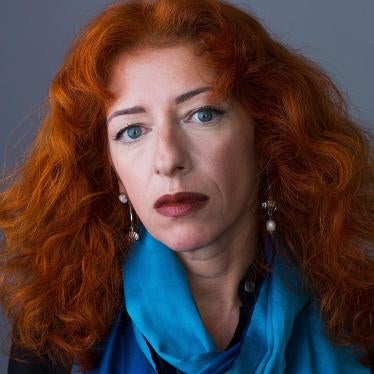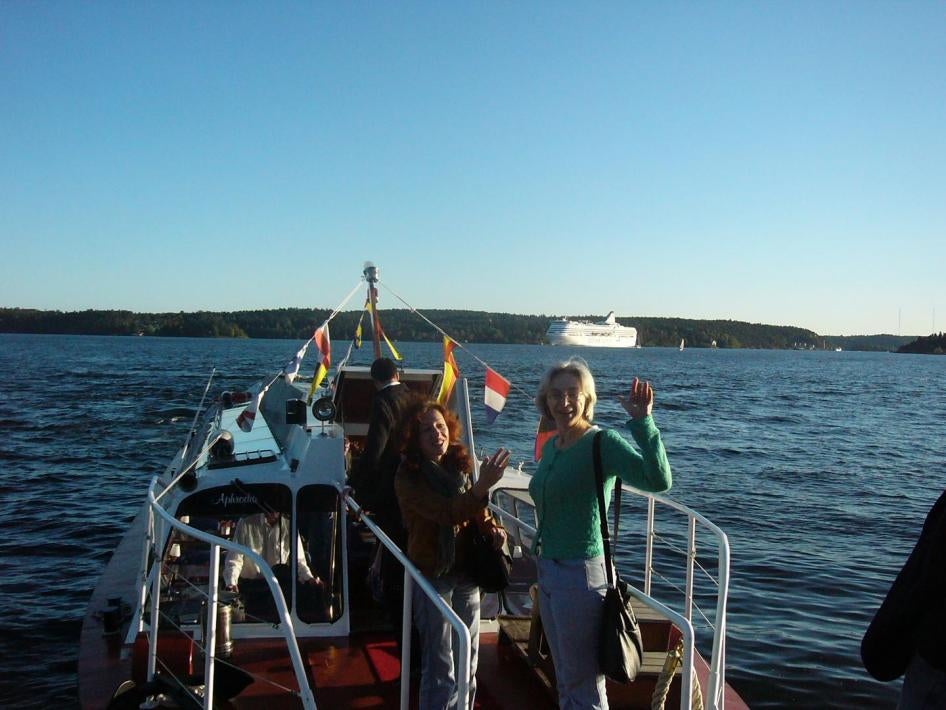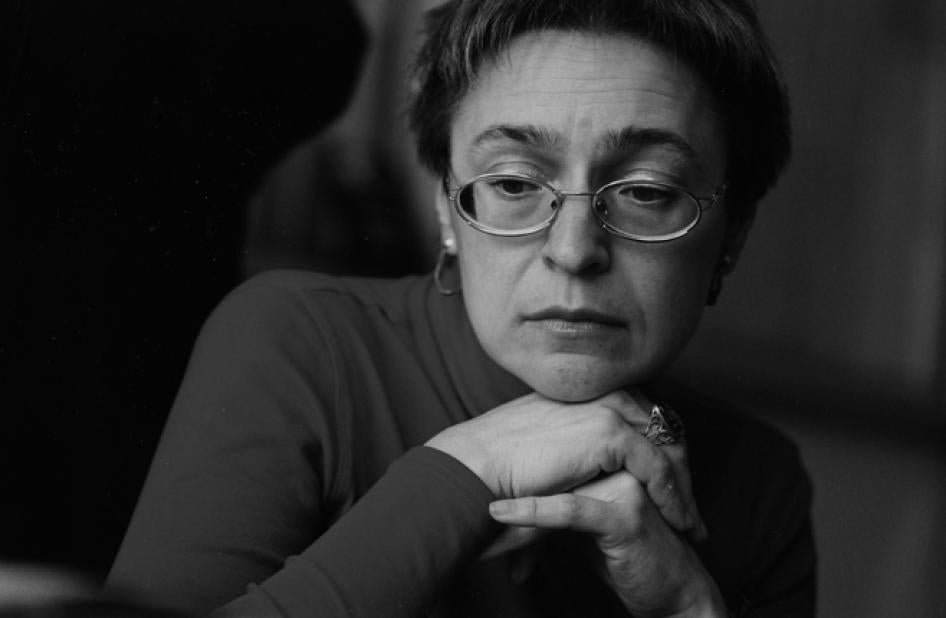I was at a farmers' market in Moscow looking for a perfect eggplant when a friend called to tell me Anna Politkovskaya had been killed. I remember answering the cell phone and hearing my friend's scratchy voice, "Anya is gone. They murdered her. She's dead."
I paid for the eggplant, put it in my backpack, which was already full of fresh produce, and walked home. It was October 7, 2006, close to 5:30 p.m. The day was unseasonably warm and sunny. I put the vegetables in the kitchen sink, picked up a knife and then my numb brain finally managed to process those words: "Anya is gone, dead, murdered." I dropped the knife, grabbed my jacket and ran for the metro. That night, with dozens of others, we stood by Anna's apartment building for hours. Many brought flowers. People spoke quietly, moved slowly.
Overwhelmed with horror, we kept the vigil - because there was nothing else we could possibly do.
Anna Politkovskaya was a leading voice in Russia, reporting on the Chechnya war. For close to seven years, starting 1999, she traveled to Chechnya for Novaya Gazeta, taking tremendous personal risks to tell stories of indiscriminate bombing and shelling, atrocious mop-up operations by federal forces, brutal killings, disappearances and torture of civilians.
Anna was and will always be a hero for ordinary Chechens. It is largely owing to her that the world knows about crimes against civilians in the course of that dirty war.
Ramzan Kadyrov has been running Chechnya as his own fiefdom with the Kremlin's blessing for close to a decade already. Just a few weeks ago, he jubilantly confirmed his hold over Chechnya through a popular vote, as local authorizes ruthlessly punished even the mildest critics ahead of the September 18 election.
But back in 2004 to 2006, when he was only consolidating his power, Anna published damning reportages about Kadyrovtsy, Chechen security officials under his control who effectively picked up the mantle of egregious abuse from federal forces. She described Kadyrov as the Kremlin's "little dragon" and called for his arrest.
Two weeks before Anna's murder, she and I met at an international conference in Sweden. On the first day of the event, we fought bitterly. Anna accused human rights organizations of pulling their punches, withholding victims' names and hushing up some egregious cases of violations out of fear.
"Not fear for ourselves, but rather fear of causing harm to the victims, Anya," I argued. "But what about the truth? You think you're protecting people but you're contributing to a conspiracy of silence! Your primary responsibility is to tell the truth and you're falling short of it," she persisted.
That evening, together with a few friends from other rights groups, we grumbled that a story seemed more important to her than protecting victims. Anna had become such an icon, to us it seemed that she practically transcended danger, that nothing would happen to her. She was too famous for that, we thought, but the people she was exposing, they could suffer. If we had only known...
Anna was shot dead as she got into an elevator in her apartment building in central Moscow - a neighbor found her body and a Makarov 9-millimeter pistol dropped next to it. When lining up to approach the coffin and bid Anna goodbye at a cemetery in the outskirts of Moscow, I kept thinking, "Thank God, we made up in the end..."
The conference was on a small island close to Stockholm, all grass, rocks, and pine trees. The place was so lovely and peaceful, we all mellowed out by the second day. On the boat ride back to Stockholm, we laughed together and made work plans. We parted friends.
Almost eight years later, in summer 2014, five men -- four Chechens and a former Russian police official - were convicted for Anna Politkovskaya's murder. Two of them received life sentences, the other three will spend from 12 to 20 years in prison. However, justice has not been done because those behind the murder, those who actually ordered Anna killed, have never been named.
These days, very few journalists report from Chechnya. The local leadership has been making it increasingly difficult for Russian independent outlets and foreign correspondents to work in the region. They have fostered a climate of terror in which people no longer dare talk to journalists, except to lavishly compliment Kadyrov and his policies.
Journalists who persevere also find themselves at great risk - they're threatened, detained, physically attacked. Still, they keep returning to Chechnya to find those incredibly brave souls who want their stories told, despite the fear of retaliation. And they tell new stories, working toward the same mission Anna held so sacred - that of doing one's best to get to the truth.











